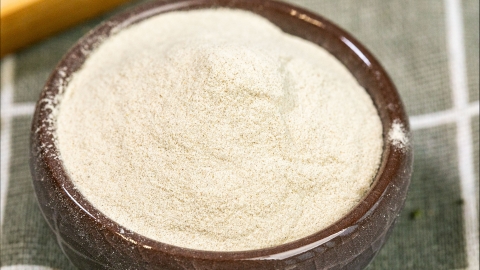Can patients with high blood lipids consume protein powder?
High blood lipids usually refer to hyperlipidemia. Whether patients with hyperlipidemia can consume protein powder depends on individual circumstances. Patients with insufficient protein intake or those needing nutritional supplementation may moderately use protein powder, whereas it is not recommended for those with kidney dysfunction or excessive protein intake. Detailed analysis is as follows:

For patients with inadequate protein intake—such as vegetarians or individuals with weak digestive and absorptive functions—moderate consumption of protein powder can help supplement high-quality protein, maintain muscle mass and metabolic function. High-quality protein powders are typically low in fat and do not significantly increase lipid load. It is advisable to choose low-fat types such as whey protein or soy protein.
For patients with impaired kidney function, the kidneys' ability to metabolize protein is reduced. Excessive consumption of protein powder increases the renal burden and may indirectly affect lipid metabolism; therefore, its use is not recommended. Even for individuals with normal kidney function, protein intake should be controlled to prevent metabolic disturbances caused by overconsumption.
A balanced diet should be maintained in daily life, with priority given to obtaining protein from natural food sources such as lean meat, fish, shrimp, and eggs. Total calorie and fat intake should be controlled, along with increased consumption of vegetables and whole grains. Regular physical activity also helps stabilize blood lipid levels.




